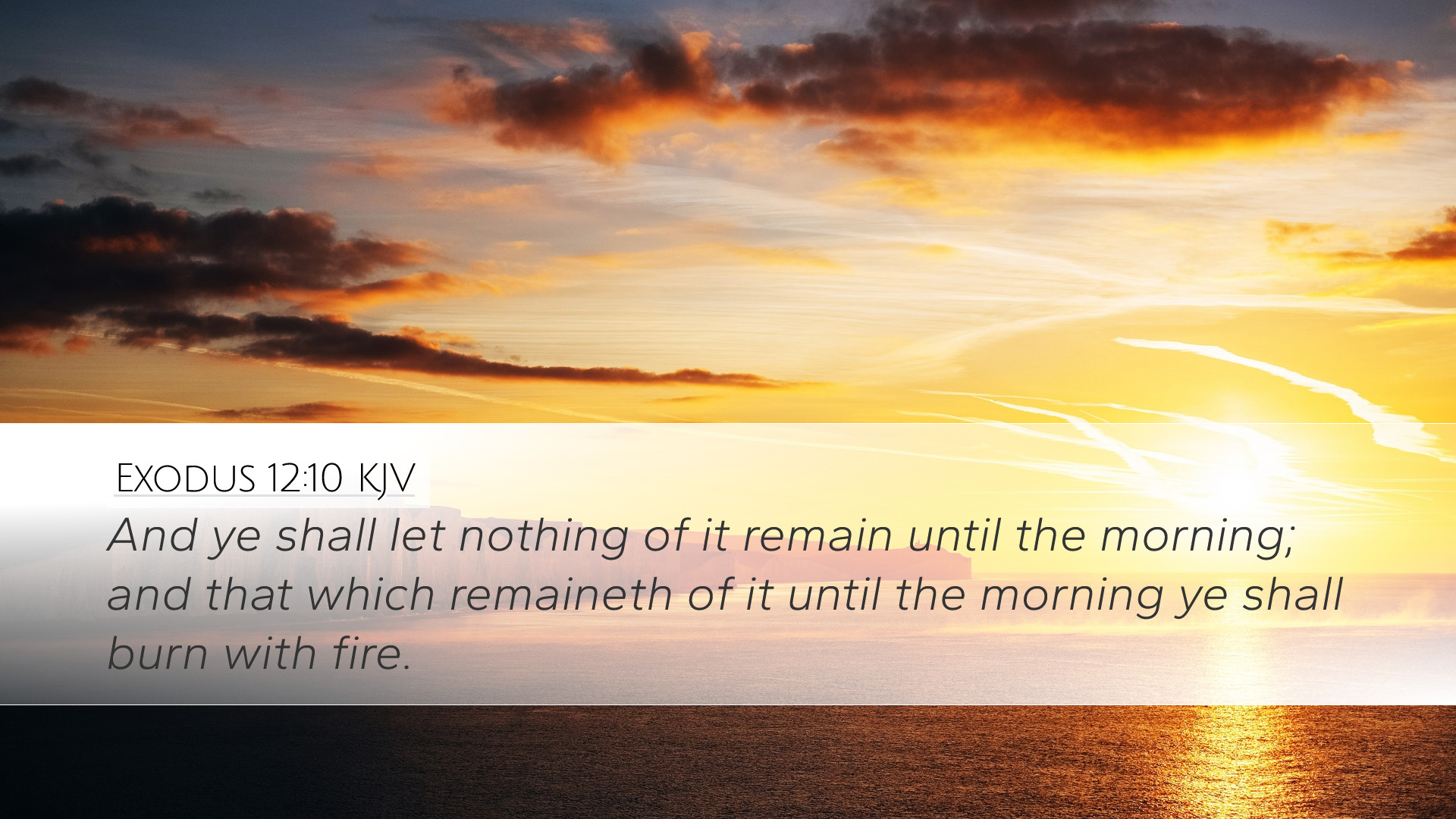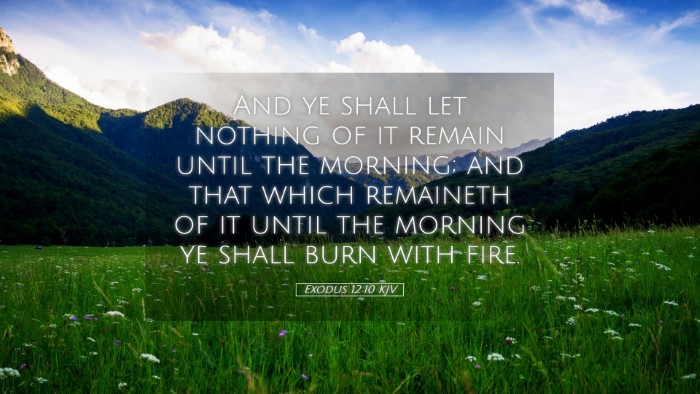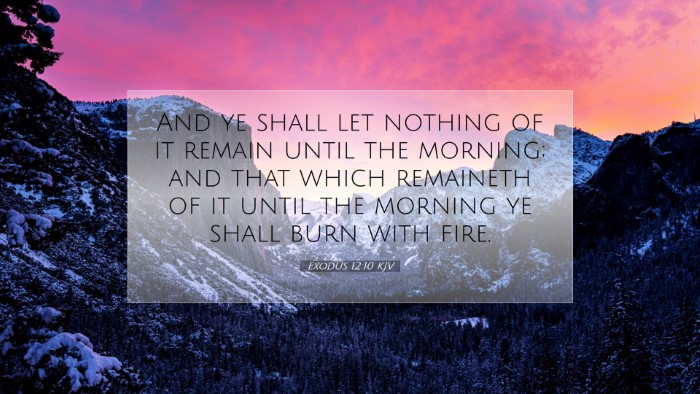Exodus 12:10 - Commentary
Exodus 12:10 states, "And ye shall let nothing of it remain until the morning; and that which remaineth of it until the morning ye shall burn with fire."
This verse is part of the narrative concerning the Passover, a pivotal moment in Israel's history and a significant theme throughout Scripture. The instructions given to the Israelites regarding the lamb, which speaks volumes about obedience, sacrifice, and the foreshadowing of Christ, deserve a thorough examination.
Historical Context
The Passover marks the culmination of the plagues that God unleashed upon Egypt. It was meant both as deliverance for Israel and as judgment against the Egyptians. Understanding the gravity of these instructions involves recognizing the context of oppression, deliverance, and covenant relationship that Israel had with God.
Thematic Insights
The command in Exodus 12:10 underscores several key themes:
- Obedience: The directive to consume the lamb entirely demonstrates the importance of adhering to God's commandments. Disobedience in this matter could result in serious repercussions.
- Purity and Holiness: The command to burn the remains signifies a cleansing act. It symbolizes the removal of anything that may corrupt the sacrifice and, by extension, the people of God.
- Foreshadowing of Christ: The Passover lamb foreshadows the perfect Lamb of God, Jesus Christ, whose sacrificial death fulfilled the requirements of the Law on behalf of humanity.
Commentary Highlights
Matthew Henry's Commentary
Matthew Henry emphasizes the urgency and completeness required in the observance of the Passover, reflecting the necessity of total commitment to God’s commands. He points out that the lamb, a symbol of purity, had to be treated with utmost respect.
Albert Barnes' Notes on the Bible
Barnes elucidates the significance of not leaving anything until morning. He interprets this as a measure of faith, symbolizing that the Israelites were to trust in God's promise of deliverance without reservation. This command also underscores the transient nature of the meal, which was not merely a feast but a significant ritual laden with purposeful meaning.
Adam Clarke's Commentary
Adam Clarke further elaborates on the burning of the remnants. He notes that the act of burning signifies an offering to God; nothing that is sacred should be treated casually or with negligence. Clarke asserts that this is a reflection on how the Israelites were to view their covenant relationship with Yahweh—serious and sacred.
Theological Reflections
The verse contains profound theological implications. In instructing the Israelites to consume all of the lamb and to burn any remnants, it compels a closer examination of what it means to partake fully in God's provision. The complete consumption can be likened to the complete commitment of believers to Christ, symbolizing a full acceptance of His sacrifice without reserve.
Practical Applications
For pastors, students, and theologians, Exodus 12:10 prompts various applications in ministry and personal spiritual practices:
- Total Commitment: Are we fully committing to the things of God without leaving anything behind? This serves as a reminder to engage in our spiritual lives wholeheartedly.
- Sacred Practices: Emphasizing the importance of our rituals and sacraments in church life, treating them with reverence.
- Faith in Action: Encouraging believers to trust God’s delivery promises completely, echoing the faith exhibited during the first Passover.
Conclusion
Exodus 12:10 offers rich insight into God's plan for redemption and the serious nature of the covenant relationship established with the Israelites.
The directive to consume the sacrificial lamb entirely and to purge any remnants by fire points to the significance of obedience, holiness, and foreshadowing the ultimate sacrifice of Christ.


